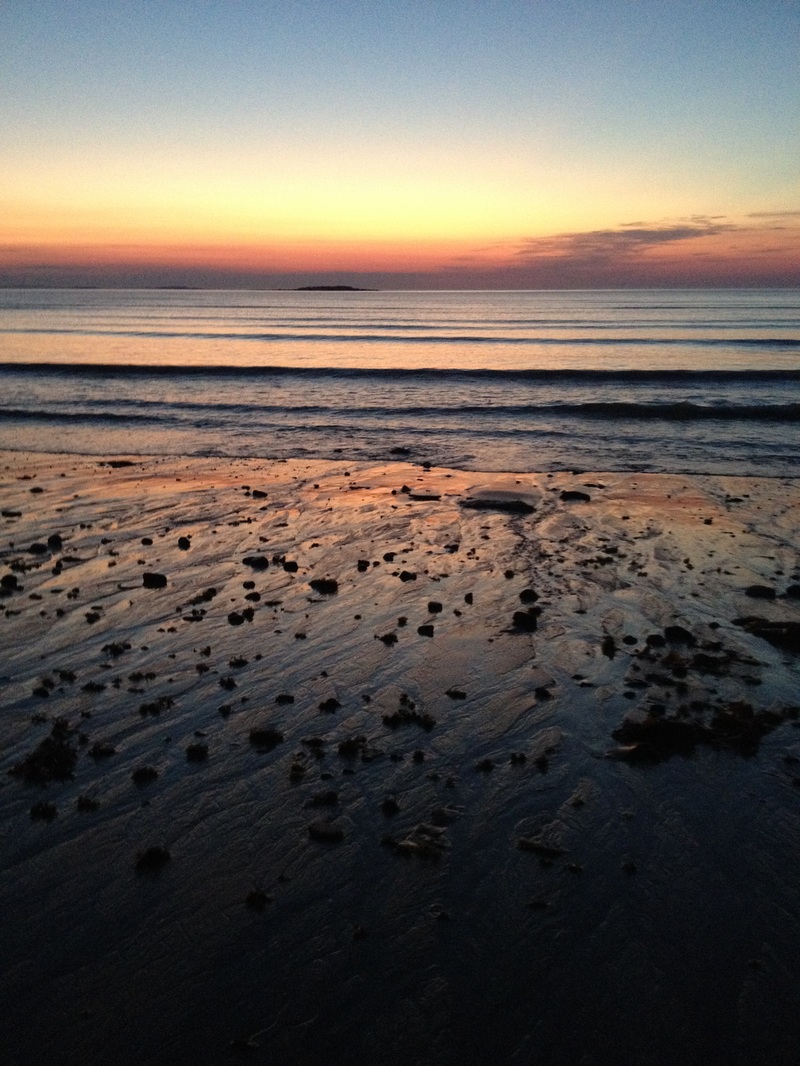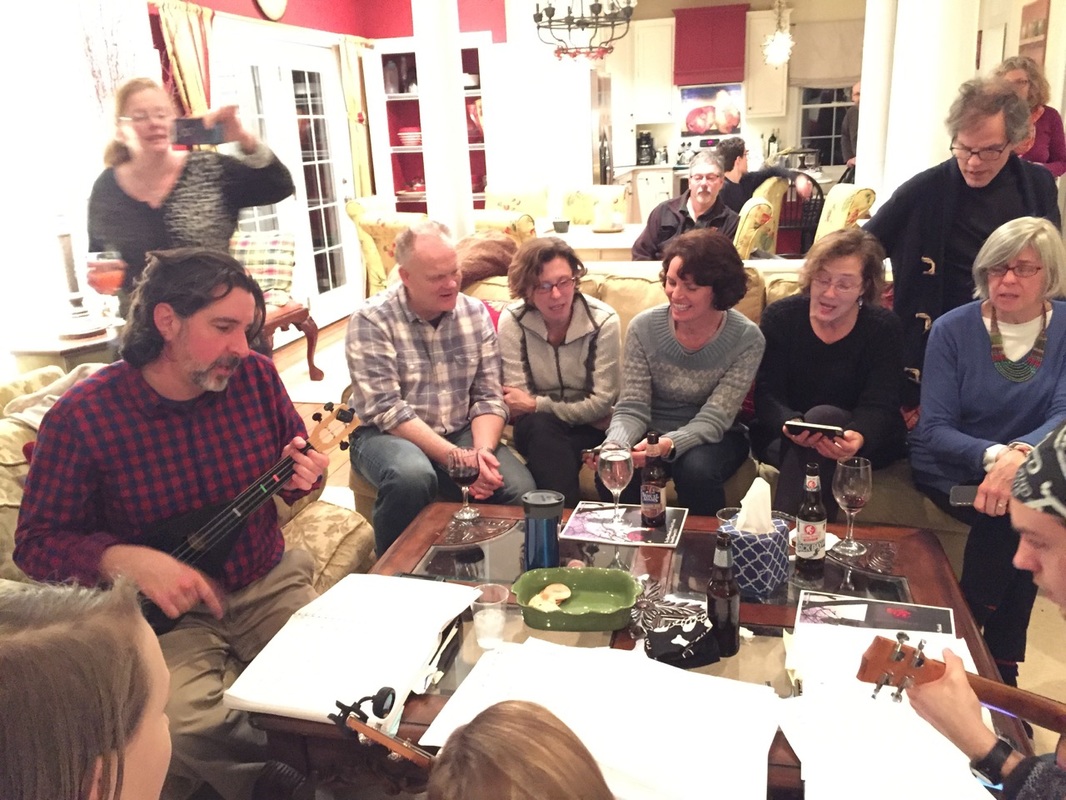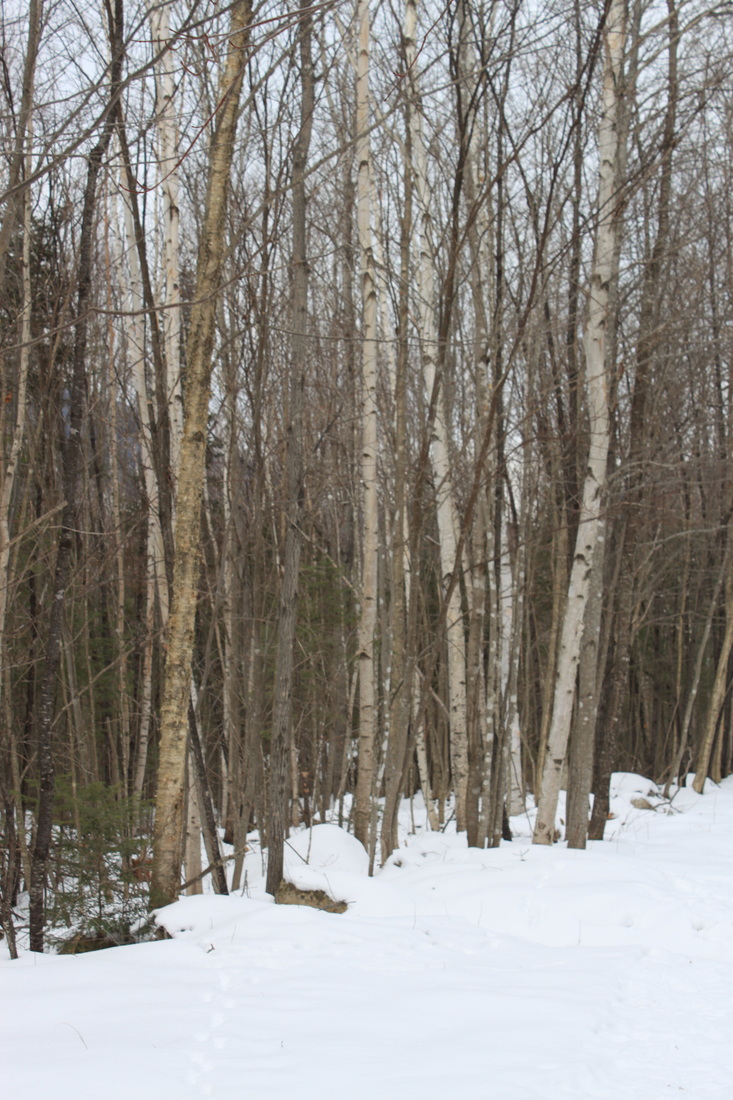|
As you may have gathered, what I would really like to do for Lent is curl up into the fetal position and only leave it to grab some eat–things thereby staying alive until Easter. However, I can't really do that. In fact, this primal urge to creep to the back of the cave and subsist on nuts, berries, and fungus from the wet stone walls is why I usually try to have some sort of Lenten discipline, instead.
If you have known me for a while, then you will realize that I am not a big fan of giving something up. Instead I tried to take something on. This year, as in most years, what I chose is boring ol' research and study. When I was a kid we lived in the country, relatively far from my friends. Then, in middle school, I had one horrendous year where I literally knew no one my age who genuinely liked me. A quick change of educational institutions altered my situation somewhat. However, the new school was about half an hour to the south so even though I had friends, I still spent a great deal of time alone. This basic sense of aloneness was alleviated by my love of books. I survived the years between my second time through seventh grade and the summer before my 12th grade year (when I had a car and a driver's license) by becoming deeply interested in something and reading everything I could about it. The topics were self–selected and far-ranging. I can tell you a great deal about the labor movement, the Peloponnesian war, and every role-playing game ever made. I read the collected works of Franklin W Dixon, Philip K Dick, Jane Austen, and J.R.R. Tolkien. My interest in Christianity and religion in general also came from this time. The problem of course, was that these interests never coincided with my required coursework. Throughout life my grades have been mediocre at best (much to my parents' dismay). While I don't read as much as I use to (except for work), this tendency to retreat into a subject is still my go-to spiritual practice. In fact, I am looking forward to the research portion of my folk music project (when I learn about the history of the song) as much as the performance part. I suspect that many of the selections will ultimately be made based on the stories behind them. So my usual plan during Lent is to be more intentional about what I am reading. Last year was pretty biblical. I did a study of Mark and then preached a series using that text. This year, however, I needed a change. Also, I needed something less overtly "religious" and something less all-encompassing. Instead, I am reading Carl Sandberg's four-volume history of Abraham Lincoln during the Civil War. So far it is pretty good! Thanks to Sandberg's tendency toward digression and the obvious change in perspective from the battlefield to the capitol, I am learning a great deal about the personalities and the debates around the large and small issues of that time. Andrew Johnson is a whole lot more interesting than we were taught in high school! I picked reading and research over more traditional Lenten practices because it fits me better. I do lots of the typical religious person things (prayer and meditation for example). However, for whatever reason, I find myself more fulfilled through the focus required to immerse myself in a topic. I am bringing it up in Burbania Posts because you may be looking for something to take on this season. If traditional contemplative practices aren't your bag, I encourage you to do something anyway. Just think outside the box! It doesn't have to be boring, musty, texts. I just happen to like boring things. You may think of something else. So what will it be? Will it be the usual change in exercise? Will it be your own research project? Will it be ten YA novels and a glass of wine each night? All it needs to be is something different, something that makes you think, something that fills you during a time of emptiness.
0 Comments
Hey Folks,
I need your help. I have a sabbatical coming up and am in the process of figuring out what I can do to add value to my ministry. I am looking for places where my own interests intersect with those of the church. I am also looking for projects that will be fun to do. This quest naturally led to folk music. Music in general is one of the things that brings Eliot Church together. We love singing hymns, listening to the "special music" provided by our music director and soloists. We enjoy participating in and hearing the choir. Then, of course, there is the Ukestra which has its own spot on this webpage and provides numerous opportunities to play and sing. What I would like to do for my sabbatical (I have other plans as well) is to learn to play at least 20 folksongs without recourse to written lyrics, chord sheets, or notation. Part of the reason for my wanting to do this simply comes from the social awkwardness of people learning that I play the ukulele/mandolin/guitar, shoving an instrument into my hands, and asking me to play something. It is awkward. The fact is I only know a few songs where I don't need some form of assistance. However, that is not the only reason. I am also on a quest to accumulate songs for the Ukestra and for worship in general. Folk music is a good place to start. There are reasons for this (some of them obvious) and I am sure that I will unpack that more over time. Right now, though, I would like to accumulate a list of songs that you my loyal colleagues, readers, and fellow Eliot members think I should learn. Since "folk" is a word with many meanings, I have some guidelines for us to think about... WHAT I AM LOOKING FOR 1) Actual Folk Songs: As a marketing term, Folk Music can mean a lot of things. Here, however I have a rather restricted vision. Which is to say, I mean actual folksongs. Not semi-acoustic "folky" songs like we hear a Newport. I am not interested in contemporary singer-songwriters from the 1960s to the present. The idea is to find music that is shared (or can be shared) over a broad group of people. In fact, what I am most interested in are songs that we find ourselves singing but are (at first at least) unsure of the author. "Drunken Sailor" or "This Land is Your Land" spring to mind. They are simple and in some sense eternal. I am not interested in fancy guitar work or introspective ballads. I love Frank Turner. I enjoy Jason Isbell. They and their ilk are great artists but I am looking for songs that identify with a people rather than a person. 2) Simplicity: Folksongs are meant to be sung and played by actual folks. This means that they are usually structured in a simple, easy to remember way. Repeated lines, only one or two "parts" (verse and chorus), and simple tunes make it possible for a large group of people to know a song, perform it, and enjoy it. To that end, I am looking for songs with from one to five chords and no "bridges". Any more than three chords is probably showing off. It is worth remembering, in fact, that many folksongs (work songs in particular) didn't have any accompaniment to start. 3) "Traditional" or "Anonymous" : There are many exceptions to this rule, however in general I am interested in traditional songs. Sometimes there won't be an author. Sometimes the tune has been used before or at least echoes other songs. Certainly some actual folksongs do have authors. Woody Guthrie, Elizabeth Cotton, Charlie Poole, and Robert Johnson are among just a few of the songwriters whose work has transcended their own performance and entered into our cultural consciousness. These are all great choices or suggestions. A great many commercial acts in the "Americana" vein will throw a couple covers onto their albums. Some of them are obvious and well-known songs. Some of them are not but could be. This is a good place to look. All of them are fair game for us to learn. 4) Participatory: Finally, I would like to reiterate that the songs be the sort that people enjoy singing together. Yes, sometimes that means a hymn or spiritual. Yet sometimes it could mean a drinking song, patriotic song, or murder ballad. It just needs to have strong lyrics a steady beat and a simple tune. WHAT I WILL DO Once I have a collection of, say, 20 songs that fit the guidelines, I will select 10 that seem interesting and get started. My plan is to research the history of each song, learn to play it, and then record a simple version to place on this webpage. I will throw the chord progressions in there as well. Ultimately, I will either keep these posts under a separate heading in Burbania Posts or create a "Burbania Folk" page. That will depend on volume, I think. If anyone (colleagues, bandmates, and congregants in particular) would like to be on the recordings please let me know that as well. I think the videos will get pretty boring without guest performers. Besides--as I said--I envision this project as being a participatory one! Ukestra members of course may very well see some of the songs again... In a good way. So anyway, what are your thoughts? Are there folksongs that you would like to hear in church? Ones that you would like to learn yourself? Ones that you would like me to learn because you think it would be funny? Let me know! I have some ideas but I am very interested in others. Lent isn't like Advent for me. I realize that structurally they seem very similar. One lasts about a month right before Christmas. The other is slightly longer and ends with Easter. Therefore the casual observer can be forgiven for lumping them together. However, I don't see them the same way. Partly this just has to do with my attitude. You see, I am not at my best during the wintertime. People who know me will tell you that I am naturally moody. For whatever reason my greatest susceptibility to the funk is right about now. When I step up to the beginning of Lent I'm not feeling a post – Thanksgiving rush of seasonal enthusiasm. Instead I am in the midst of a grim slog through the darkness. In fact, that is the biggest difference. Advent is a walk through the darkness, but there is always a little light. I am able to put together a series of rituals for myself, for the family, and for the church that bring us from one place to another. Every day I send out a little post for my "Facebook Advent Calendar". The secular culture around us, of course, wants to skip Advent all together in favor of a four week festival of consumption. While I don't really agree with this approach, I do enjoy the steady diet of parties, concerts, and festivals. By the end of the season I am ready for Christmas. Lent, on the other hand, comes at a fragile time for many of us. It certainly does for me. I have never heard of a "Lent party". Super Bowl Sunday and Valentine's Day are nice but not consistent enough. Winter is cold (not so much literally this year, but definitely metaphorically). It is hard sometimes just to peel myself out of bed. Perhaps this is why--though I don't get the warm holiday fuzzies-- I need Lent more than Advent. After all, at times we all could use a little discipline to get going. The trick for Lent is to watch for smaller, quieter signs of grace. This morning, when I moved my car across the street to facilitate a quick getaway for part of the morning school run, I noticed that the sky and the air were just a bit lighter than they were the day before. Earlier this week I had a seemingly innocuous conversation that helped me think about some things. Keep on the lookout. You never know what you will find. Also, I need to get out. There are people who do well sitting by themselves but I just don't. If you are that sort of person, perhaps your Lenten discipline can be a social one. I might just join you in that. Actually, church is a great help for getting out and busy. I realize that may be surprising if you aren't part of a congregation (the stereotype of church is all candles, incense and silent drama, after all) or if your congregation leans more toward the contemplative side of things. In my experience, though. There is plenty of positive chaos in a religious community. I plan to tap into it. As Lent comes closer I am doing my best to develop a plan. Part of this plan is for work. There needs to be a sermon theme, for example. Right now we are considering one in which we discuss current events and issues like the Flint water crisis and the election coming up. Connecting that back to the life of the spirit shouldn't be all that difficult. If we are trying to be authentically ourselves, then how we act in the world is part of that journey.
Still, there is a part of my Lent plans that is personal. How do I get up in the morning? How do I find meaning in a time when meaning is hard to find? I will figure it out, of course, and then (because life forms preaching) whatever comes up will influence my work. I am not the only one who tends to slip on the ice in the dark of winter. What are your plans? |
Adam Tierney-EliotThis is my old weblog of many years. I will probably post here from time to time is there is a subject that does not fit WWG. However WWG is the more active page at this point. Archives
April 2022
Categories
All
|




 RSS Feed
RSS Feed